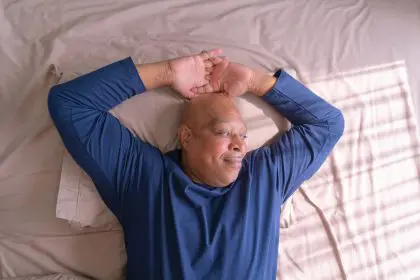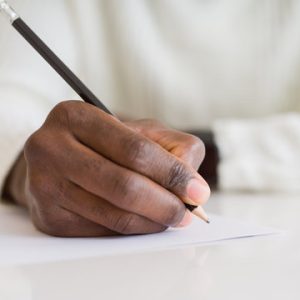As an endurance athlete, I’ve lost up to two pounds of water weight in a training session. I’ve learned to pay close attention to my fluid intake, particularly because it’s so easy to forget to drink enough.
The closer I get to middle age, the more I notice how my body responds to stress. When you’re in your 20s — just like my mother used to tell me — you can’t imagine what it’s like to start seeing the signs of aging. It’s as if you think you’ll be young forever. A late night out of drinking with the buddies can leave you looking wrecked and feeling like you left your brain and your body at the club. Dehydration plays a large role in our appearance and our skin’s suppleness.
As the body loses water in the form of sweat, this fluid needs to be replaced, or the body cannot perform optimally. During exercise, you should be diligently and consistently replenishing your fluids. Not having enough fluids, as a result of excessive loss of water from the body, leads to dehydration. Too much, leads to overhydration.
How much water should you drink? The average adult should consume 64-96 ounces (1.9-2.8 liters) daily. A general guideline is that active people should consume at least twice this amount. The volume of water intake should increase according to the amount of exercise performed. On very hot days, fluid loss will be greater, and fluid replacement needs are even higher.
During exercise, sports drinks are optimal in many ways. They can replace the sodium and electrolyte imbalance that regular water can’t. They also provide a great source of fuel (carbohydrates) that are necessary for optimal performance during intense athletic training sessions. I generally adhere to a low-carb diet, but I am an advocate of sports drinks during exercise. Research shows that consuming carbs during exercise can enhance performance. Sports drinks provide liquid calories that are easily digestible, which is important for endurance athletes.
How much should you consume during long workout sessions? For endurance cycling, one 12-ounce bottle per hour is recommended. The initial hours immediately after exercise are most important for replenishing depleted fluids. I think that this estimate works for any number of longer-duration exercise sessions.
Here are my top three suggestions for staying hydrated throughout the day:
1. Drink a glass of water first thing in the morning, before you ingest anything else. Not only will this support optimal digestion, but it will set the tone for the rest of the day, and you will be in the habit of consuming more H2o.
2. Carry a reuseable water bottle with you, and keep a gallon of water in the trunk of your car. I drink a lot more water when I have a container that I enjoy drinking out of (as opposed to the disposable bottles). Also, by keeping a gallon in my car, I always have access to clean water, even when I am in a hurry or on a long car ride.
3. Work out daily. The more you exercise, the more water you will drink. As you sweat and burn calories, your body tells you to drink more water. The two go hand-in-hand.
There are many examples of professional athletes misjudging how much water to consume prior or during a major event. In 2003, Lance Armstrong suffered from dehydration after failing to drink enough fluids before the individual time trial event. He lost an astonishing 12 pounds of water that day! Dehydration can cause significant damage to the body. It can take several days of rest and hydration to recover fully.
By paying close attention to your fluid replacement, you will avoid the pitfalls of dehydration and enable your body to perform at its best.
Wishing you health and happiness,
HLJ
Holly Lowe Jones is a media professional, fitness expert, and ISSA-certified personal trainer. A member of the National Association for Health and Fitness, Jones is also a seasoned triathlete who competes in her spare time.
For more information, please visit her website www.hollylowejones.com.
Facebook: www.facebook.com/hollylowejones
Instagram and Twitter: HollyLoweJones

















